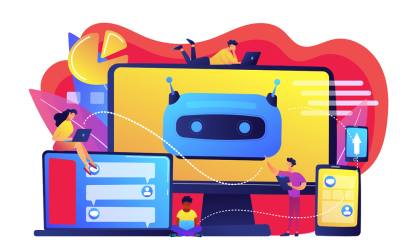Pros and cons of AI-generated content
July 2023
AI-generated content has been gaining popularity over the years. In this article, we talk about the pros and cons of AI-generated content. Nowadays companies and individuals are using it to produce articles, social media posts, and even entire books. While technology has undoubtedly improved the efficiency of content creation, there are also cons to relying on AI-generated content. So before you start using it, you should know the advantage and disadvantages of AI-generated content.
Pros of using AI-generated content
Now let’s see what advantages using AI-generated content have.
1- Saves Time and Money
AI-generated content can produce high-quality content in a fraction of the time it would take a human writer. This can save businesses time and money on content creation.
2- Consistency
AI-generated content can produce consistent content that adheres to a brand’s tone and style guidelines. This ensures that all content is cohesive and on-brand.
3- Scalability
AI-generated content can create a large amount of content quickly, which is ideal for businesses with high content demands.
4- Data-Driven
AI-generated content can be data-driven, meaning that it can analyze data to produce content that is tailored to specific audiences. This can increase engagement and conversion rates.
5- Personalization
AI-generated content can create personalized content for users based on browsing history and preferences.
6- Variety
AI-generated content can create a variety of content types, including articles, social media posts, and product descriptions. This can help businesses diversify their content and reach a wider audience.
7- Improved SEO
AI-generated content can incorporate SEO best practices, such as using keywords and optimizing meta descriptions, to improve search engine rankings.
In conclusion, AI-generated content offers many benefits that can help businesses save time and money, create consistent and scalable content, improve engagement and conversion rates, and optimize search engines.
Cons of AI-generated content
Firstly, AI-generated content lacks the human touch. While AI algorithms can produce grammatically correct sentences and paragraphs, they lack the creativity and nuance of human writing. This can result in bland, uninspired content that fails to engage readers.
Secondly, AI-generated content can be unreliable. AI algorithms are only as good as the data they are trained on, and if that data is biased or incomplete, the resulting content can be inaccurate or misleading. In addition, AI-generated content can be prone to errors, such as incorrect facts or misspelled words, which can damage the credibility of the content.
Thirdly, AI-generated content can be repetitive. Because AI algorithms rely on pre-existing templates and data, the content they produce can often be similar or identical to other AI-generated content. This can lead to a lack of originality and a decrease in the value of the content. Fourthly, AI-generated content can be impersonal. While AI algorithms can be programmed to use personal pronouns and other indicators of human writing, the resulting content can still feel sterile and impersonal. This can make it difficult for readers to connect with the content and can reduce its overall impact.
Finally, AI-generated content can be ethically problematic. As AI algorithms become more sophisticated, they can increasingly mimic human writing to the degree that can be difficult to distinguish from genuine human writing. This can create ethical concerns around issues such as plagiarism and copyright infringement.
Pros and cons of AI-generated content: conclusion
In conclusion, while AI-generated content has its benefits in terms of efficiency and cost-effectiveness, several significant cons cannot be ignored. From a lack of creativity and reliability to issues of originality and ethics, relying too heavily on AI-generated content can result in subpar content that fails to engage readers and undermines the credibility of the content creator.

